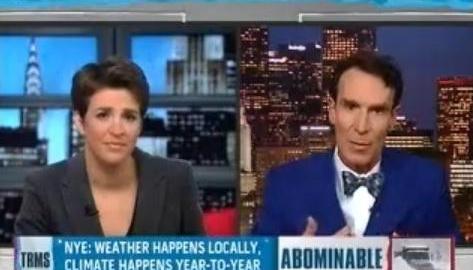Reading List for Course on Science and Environmental Communication

This semester, students from a diversity of majors at American University are participating in an advanced seminar I am teaching on science and environmental communication. For the first part of the semester, we are covering core issues and themes. In the process, students will be blogging on related selected topics while finalizing their research paper topic.
In the second half of the semester, readings and blogging will focus on specific issues of interest to the students, as determined by a class survey. Topics may include climate and energy; industrial farming and the food system; biomedical and stem cell research; and women’s health and reproductive rights.
Below I have included the assigned readings for the first half of the semester with links to the full text of each article if available. You can also follow links to assigned video presentations and audio casts. Blog posts from the class will be tagged and archived. See for example posts from last year’s class as well as the reading list.
INTRODUCTION TO MAJOR THEMES AND ISSUES
Wynne, B. (2009). Interview: Rationality and Ritual. In Cayley, D. Ed, Ideas: On the Nature of Science. Frederickton, CA: Goose Lane. [Also listen to episode.]
Brossard, D., & Lewenstein, B. V. (2009). A Critical Appraisal of Models of Public Understanding of Science: Using Practice to Inform Theory. In L. Kahlor & P. Stout (Eds.), Communicating Science: New Agendas in Communication (pp. 11-39). New York: Routledge.
Hartings, MR and Fahy, D. (2011). Communicating Chemistry for Public Engagement. Nature Chemistry. Vol 3. September, pp 674-677. [PDF]
Kitcher, P. (2010). The Climate Change Debates. Science. 328. 4 June. 1230-1234.
Sarewitz, Daniel. 2009. The Rightful Place of Science. Issues in Science and Technology, Summer 2009: 89-94. [PDF].
Brumfiel, J. (2009). Supplanting the Old Media? Nature, 458, 274-277. [PDF]
Olson, R. (2011). Dude, Where’s My Climate Change Movement? Presentation to 50th Anniversary of the World Wildlife Fund. [Watch the Video].
SCIENCE AND A PLURALISTIC, PARTICIPATORY PUBLIC
National Science Foundation (2012). Public Attitudes Towards Science and Technology. Science and Engineering Indicators 2012. Washington, DC: National Science Foundation. [PDF]
Nisbet, M.C. (2011). Public Opinion and Political Participation. In D. Schlosberg, J. Dryzek, & R. Norgaard (Eds.), Oxford Handbook of Climate Change and Society. London, UK: Oxford University Press. [HTML].
Nisbet, M.C. & Kotcher, J. (2009). A Two Step Flow of Influence? Opinion-Leader Campaigns on Climate Change. Science Communication. [PDF]
Collins, M. & Pinch, T. (1998). The Golem at Large: What You Should Know About Technology. New York: Cambridge University Press, pp. 113-56.
SCIENTISTS, EXPERT INSTITUTIONS, AND THE PUBLIC
Besley J. & Nisbet, M.C. (2011). How Scientists View the Public, the Media, and the Political Process. Public Understanding of Science [HTML].
Osmond et al (2010). The Role of Interface Organizations in Science Communication and Understanding. Frontiers in Ecology and the Environment. [HTML]
Blackman, S. (2009). Promises, Promises. The Scientist. [HTML]
Fahy, D. (2011). Richard Dawkins: A Critical Case Study of the Celebrity Scientist. Working Paper. Washington, D.C.: American University.
Nisbet, M.C. (2010). Do Scientists Have a Special Responsibility to Engage in Advocacy? Interview with Michael Nelson. Age of Engagement blog, Big Think.com. [HTML].
THE ENVIRONMENTAL MOVEMENT AND COMMUNICATION
Guber, D. & Bosso, C. (2009). Past the Tipping Point? Public Discourse and the Role of the Environmental Movement in a Post-Bush Era. In Environmental Policy: New Directions for the 21st Century, 7th ed., Norman Vig and Michael Kraft, eds. CQ Press, 2009: 51-74.
Schellenberger, M. & Nordhaus, T. (2004). The Death of Environmentalism: Global Warming Politics in a Post-Environmental World. The Breakthrough Institute. [PDF]
Dunlap, R. & McCright, A. (2011). Organized Climate Change Denial. In Oxford Handbook of Climate Change and Society, ed. David Schlosberg, John Dryzek, and Richard Norgaard. Cambridge: Oxford University Press. [HTML]
Crompton, T. (2008). Weathercocks and Signposts: The Environmental Movement at a Crossroads. UK World Wildlife Fund. [PDF]
Hart, P., & Nisbet, E. (2011). Boomerang Effects in Science Communication: How Motivated Reasoning and Identity Cues Amplify Opinion Polarization About Climate Mitigation Policies Communication Research. [HTML].
Nisbet, M.C. (2011). Designs to Win: Engineering Social Change. Chapter 3 in Climate Shift: Clear Vision for the Next Decade of Public Debate. Washington, DC: American University. [HTML]
THE NEWS MEDIA, SCIENCE, AND THE ENVIRONMENT
Fahy, J. & Nisbet, M.C. (2011). The Science Journalist Online: Shifting Roles and Emerging Practices. Journalism: Theory, Practice & Criticism. [HTML]
Revkin, A. (2011). Conveying the Climate Story. Presentation to the Google Science Communication Fellows Program. [Watch the Online Video]
Nisbet, M.C. (2011). Death of a Norm? Evaluating False Balance in Media Coverage. Chapter 3 in Climate Shift: Clear Vision for the Next Decade of Public Debate. Washington, DC: American University (HTML).
Feldman, L. et al. (2011). Climate on Cable: The Nature and Impact of Global Warming Coverage on Fox News, CNN, and MSNBC. International Journal of Press/Politics. [HTML].
Scheufele, D.A & Nisbet, M.C. (in press). Online News and the Demise of Political Disagreement. Communication Yearbook. [HTML]
See Also:
What’s Next for Science Communication? Promising Directions and Emerging Best Practices
How Scientists View the Public, the Media,and the Political Process
Understanding Public Opinion and Participation in the Climate Change Debate
Reframing Climate Change as a Public Health Problem
Science Journalists Online: Shifting Roles and Emerging Practices
Study Maps Relationship Between Cable News and Climate Change Perceptions





